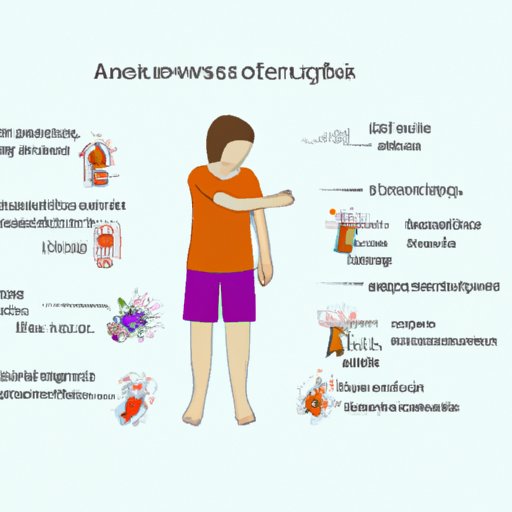Introduction
Autoimmune diseases are a group of disorders in which the body’s immune system attacks healthy cells. These conditions can affect almost any part of the body, including the skin, joints, organs, and other tissues. While there is no cure for autoimmune diseases, there are treatments available to help manage symptoms and prevent further damage.

Overview of the Most Common Autoimmune Diseases
The most common autoimmune diseases include type 1 diabetes, rheumatoid arthritis, psoriasis, lupus, multiple sclerosis, inflammatory bowel disease (IBD), celiac disease, thyroiditis, and Addison’s disease. Each of these conditions has its own unique set of symptoms and treatment options.
Impact on Quality of Life
Living with an autoimmune disease can have a significant impact on quality of life. People with these conditions often experience physical effects such as chronic pain, fatigue, and difficulty with mobility. They may also experience emotional effects such as depression, anxiety, and feelings of isolation. Additionally, financial strain can be an issue due to the costs associated with medical care and medications.
Potential Causes
The exact cause of autoimmune diseases is not known, but there are several potential factors that may play a role. Genetics may play a role in some cases, as certain genetic markers have been linked to an increased risk of developing an autoimmune condition. Environmental factors such as exposure to toxins or infectious agents may also contribute to the development of these diseases. Finally, dysfunction of the immune system itself may lead to an autoimmune response.
Symptoms
The symptoms of autoimmune diseases vary depending on the condition, but there are some common signs to watch for. These include fatigue, joint pain, swelling, fever, rash, weakness, and difficulty breathing. The severity of symptoms can range from mild to severe, and they may come and go over time.
Treatments
There is no one-size-fits-all treatment for autoimmune diseases, as each person’s condition is unique. Medical treatments may include medications such as anti-inflammatory drugs, immunosuppressants, and biologics. Non-medical treatments such as rest, exercise, stress management, and dietary changes may also help to manage symptoms.
Diagnosis Process
If you suspect you may have an autoimmune disease, it is important to see your doctor for a proper diagnosis. Diagnostic tests such as blood tests, imaging scans, and biopsies may be used to identify the condition. Additionally, a differential diagnosis may be done to rule out other potential causes of your symptoms.
Prevalence
Autoimmune diseases affect people of all ages, genders, and races. However, some age groups are at greater risk than others. Women and those over the age of 50 are more likely to develop an autoimmune condition than men and younger individuals. Additionally, certain racial and ethnic groups may have a higher risk of developing certain autoimmune diseases.
Conclusion
Autoimmune diseases can have a profound impact on quality of life. Understanding the most common types of autoimmune diseases, their symptoms, treatments, diagnosis process, and prevalence can help people to better manage their condition. If you think you may have an autoimmune disease, it is important to speak to your doctor for a proper diagnosis and treatment plan.


